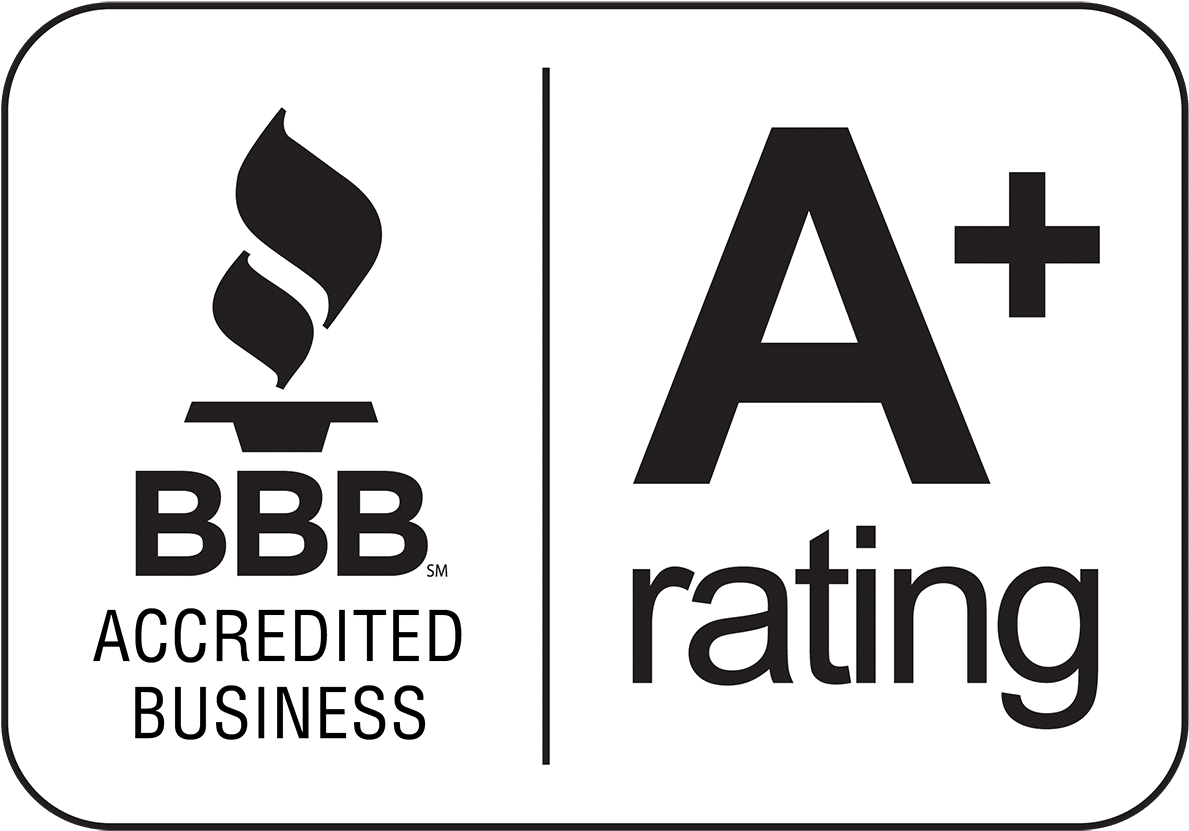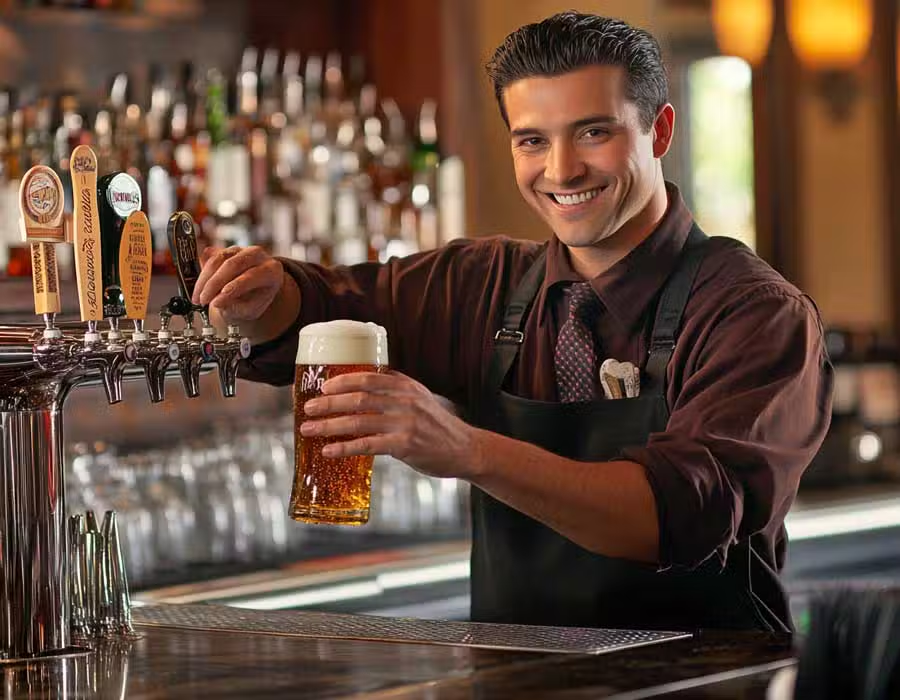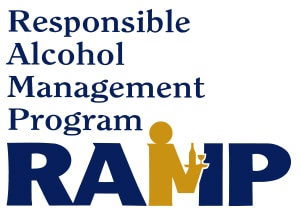Sign In -> Return to Course- State Courses
- Alabama
- Arizona
- Arkansas
- California RBS
- Colorado
- Connecticut
- Delaware
- Florida
- Georgia
- Hawaii
- Idaho
- Illinois BASSET
- Indiana
- Iowa
- Kansas
- Kentucky
- Louisiana
- Maine
- Maryland
- Massachusetts
- Michigan
- Minnesota
- Mississippi
- Missouri
- Montana
- Nebraska
- Nevada
- New Hampshire
- New Jersey
- New Mexico
- New York
- North Carolina
- North Dakota
- Ohio
- Oklahoma
- Oregon
- Rhode Island
- Pennsylvania RAMP
- South Carolina
- South Dakota
- Tennessee
- Texas TABC
- Utah
- Virginia
- Vermont
- West Virginia
- Washington
- Washington DC
- Wisconsin
- Wyoming
- Who We Serve
- Business Account
- Contact UsSupport Help
- Additional Courses
- Resources
- Knowledge Base
- Blog
Pennsylvania RAMP
Server/Seller Training
- 100% Online, Self-Paced
- Mobile Optimized Course
- PLCB-Approved
- Download Your Certificate Instantly
Trusted by thousands across Pennsylvania
Serving Alcohol has helped bartenders, servers, and employers comply with RAMP training requirements for over 40 years.
What Is RAMP Training and How Does It Fit into RAMP Certification?
As of 2016, Pennsylvania state law requires that anyone who sells or serves alcohol, checks IDs, or has direct contact with customers in licensed establishments must complete RAMP Server/Seller Training within six months of hire — unless the training was completed prior to employment.
This includes:
- Bartenders
- Servers and waitstaff
- Security and door personnel
- Managers and supervisors
- Distributor sales representatives
RAMP Training (Responsible Alcohol Management Program) is a mandatory component of the broader RAMP Certification process overseen by the Pennsylvania Liquor Control Board (PLCB). While certification involves multiple steps — including employee training, manager training, posting of signage, and submission of an application — this online course fulfills the employee RAMP Server/Seller Training requirement.
The goal of this training is to reduce liability and promote safety by teaching staff how to prevent alcohol sales to minors and visibly intoxicated individuals — key violations that can result in fines or license suspension.
Start your RAMP Server/Seller Training now to meet Pennsylvania compliance requirements. With over 40 years of experience, Serving Alcohol has trained hundreds of thousands of professionals across the hospitality and alcohol service industries. Our course is PLCB-recognized, mobile-friendly, and trusted by businesses, managers, and insurers across Pennsylvania.
Who Needs RAMP Training:
On-Premise vs Off-Premise Staff
On-Premise Alcohol Service
If you work in a bar, nightclub, restaurant, hotel, or event venue, you are considered an on-premise alcohol employee. This includes:
- Bartenders
- Servers and waitstaff
- Managers and supervisors
You are required to complete RAMP Server/Seller Training to comply with Pennsylvania Liquor Control Board (PLCB) regulations.
Off-Premise Alcohol Service
If you work at a liquor store, grocery store, convenience store, or retail outlet that sells alcohol to-go, you fall under the off-premise category. Common roles include:
- Store clerks
- Cashiers
- Stock personnel who handle alcohol sales
You are required to complete RAMP Server/Seller Training to comply with Pennsylvania Liquor Control Board (PLCB) regulations.
Need help understanding the full RAMP process? Jump to our FAQs or learn how to become fully RAMP Certified.
Pennsylvania RAMP Server/Seller Training
Our online RAMP Server/Seller Training course is officially approved by the Pennsylvania Liquor Control Board (PLCB) and fulfills the employee training requirement for the RAMP Certification process.
Whether you’re a bartender, server, manager, or retail alcohol seller, this training is legally required to work in licensed establishments across Pennsylvania. We make completing your RAMP training online and on your schedule easy.
Course Features & Benefits
- PLCB-Approved: Fully recognized by the state of Pennsylvania
- Self-paced: Start and stop anytime from your phone, tablet, or desktop
- Flexible Access: Log in and out as many times as needed
- Generous Timeline: Up to 6 months to complete your course
- Easy Completion: Only an 80% passing score required
- Free Retakes: Up to 3 attempts at no additional cost
- Instant Certificate: Download your certificate immediately upon completion
For Individuals Seeking Employment
Completing your RAMP Server/Seller Training boosts your resume and demonstrates that you’re ready to work in bars, restaurants, nightclubs, retail stores, or events. Many employers in Pennsylvania now require RAMP training before hiring.
For Businesses and Employers
Restaurants, bars, hotels, and other licensed establishments can enroll staff through our Business Account Program:
- Volume discounts
- Dedicated support
- Access to our Business Dashboard for real-time staff tracking
Whether you’re onboarding a new hire or certifying your full team, our program makes managing compliance simple.
Serving Alcohol has been recognized by Bar and Restaurant Magazine and has participated in regulatory roundtables nationwide. Our course is built by professionals with real-world experience and is continuously updated to reflect current laws and best practices.
With over 40 years of experience in alcohol safety training, we help protect your staff, customers, and business.

How to Complete RAMP Server/Seller Training Online
Getting started with your Pennsylvania RAMP Server/Seller Training is simple. Our course is entirely online, approved by the Pennsylvania Liquor Control Board (PLCB), and available 24/7 on any device. Whether you’re a new hire or looking to stay compliant, we guide you through the process step by step.
Step-by-Step: Getting RAMP Trained Online
1. Enroll in the Course
Choose the course that fits your job role:
On-Premise Server/Seller Training – for those working in bars, restaurants, nightclubs, or events.
Off-Premise Seller Training – for clerks at liquor stores, grocery stores, or convenience stores.
2. Create an Account
Sign up with your email and set a password. You’ll receive immediate access to your course.
3. Start Learning
The course is self-paced and mobile-friendly. You can log in and out at any time from your phone, tablet, or computer.
4. Pass the Final Quiz
You’ll need a score of 80% or higher to pass. If needed, you can retake the quiz up to 3 times at no extra cost. Although the PLCB requires you to take the course from the beginning for each attempt.
5. Download Your Certificate Instantly
Once you pass, your certificate will be available immediately for download and printing — no waiting. Need it later? You can always find it in our Certificate Search Tool.
Why Choose Online RAMP Training?
- Fully compliant with Pennsylvania laws and PLCB standards
- Ideal for individuals and businesses alike
- Approved across the state for all alcohol server/seller roles
Our training is built for speed, convenience, and full compliance — so you can get certified and start working faster.
Is RAMP Server/Seller Training
Required for You?
If you work in an environment where alcohol is sold, served, or consumed — and you’re involved in checking IDs, handling sales, or supervising staff — you are required to complete RAMP Server/Seller Training under Pennsylvania law.
This includes positions such as:
- Bartenders
- Servers and Waitstaff
- Barbacks
- Door Security Guard
- Bar Supervisors
- Bar Managers
- Bar Owners
- Nightclub Bartenders & Managers
- Any Person Who Serves Alcohol
State law mandates that RAMP training be completed within six months of being hired — and some employers require it before your first shift.
Who Is Exempt?
Generally, only those who do not interact with alcohol in any capacity (e.g., kitchen staff, custodians) are exempt. However, roles and responsibilities can vary — when in doubt, it’s best to be trained.
Many employers use RAMP training as a hiring standard to reduce liability and qualify for RAMP Certification status with the PLCB.
About Our Online RAMP Server/Seller Training Program
This online training program was not developed by the Pennsylvania Liquor Control Board (PLCB). However, it has been formally reviewed and approved by the PLCB as a valid curriculum that fulfills the RAMP Server/Seller Training requirement for employees working in licensed establishments throughout the state.
Our course meets all content and delivery standards established by the PLCB for the Responsible Alcohol Management Program (RAMP).
Serving Alcohol, Inc. is an independent alcohol certification provider with over 40 years of experience in delivering compliant, easy-to-access training across the U.S. We are proud to support Pennsylvania alcohol servers and sellers with a fully online, mobile-friendly course that is:
- Fast to complete
- Approved for both on-premise and off-premise roles
- Available 24/7 with instant certificate download
How We Support Your Compliance
We stay current with changes to Pennsylvania liquor laws, RAMP regulations, and PLCB requirements. Our course content is regularly updated to reflect the latest standards, ensuring you can be confident that your training meets state law requirements.
If you’re an employer seeking RAMP compliance, our Business Dashboard helps streamline staff enrollment, progress tracking, and certification downloads.

About Our Online RAMP Server/Seller Training Program
You must enter your employer’s License Identification Number (LID) during the course registration process if you are employed at a Pennsylvania liquor-licensed establishment.
This number is critical for two reasons:
- It ensures your training is credited to your employer’s RAMP certification record.
- It helps the Pennsylvania Liquor Control Board (PLCB) verify compliance.
Where to Find Your LID Number
- It is printed on your employer’s liquor license certificate, typically posted in a public area of the establishment.
- During course registration, you can also use our built-in LID Lookup Tool to find your establishment by name or address.
If you’re unsure of your establishment’s LID, don’t worry — our course includes a searchable list to help you locate it before you begin.
Why It Matters
Including the LID number during registration ensures that your participation:
- Counts toward your employer’s RAMP compliance
- Is properly recorded by the PLCB
- May be required by your employer for audit or reporting purposes
All RAMP server/seller training completions must be tied to a valid LID number to be considered part of the official RAMP Certification process.
Frequently Asked Questions About RAMP Training
What is the difference between RAMP Training and RAMP Certification?
RAMP Training refers specifically to the PLCB-approved Server/Seller Training course, which is required for alcohol service employees in Pennsylvania.
RAMP Certification is the comprehensive program managed by the Pennsylvania Liquor Control Board (PLCB). It includes employee training, manager training, compliance signage, employee documentation, and a final application submitted to the PLCB.
Who is required to take the RAMP Server/Seller Training in Pennsylvania?
Anyone who sells, serves, or handles alcohol in a licensed Pennsylvania establishment must complete RAMP Server/Seller Training. This includes bartenders, servers, barbacks, door staff, clerks, managers, and supervisors — whether on-premise or off-premise.
Is RAMP Training mandatory for serving alcohol in Pennsylvania?
Yes. The Pennsylvania Liquor Code requires all alcohol service staff to complete RAMP Server/Seller Training within six months of being hired. Some employers require it before your first shift.
How long does RAMP Server/Seller Training take to complete?
Most learners complete the RAMP Server/Seller Training in 1 to 2 hours. The course is self-paced, so you can log in and out as needed and finish on your own schedule.
What score do I need to pass the RAMP training quiz?
You need to score 80% or higher to pass the final quiz. If you don’t pass on the first try, you can retake the exam up to three times for free, although you will need to take the course from the beginning for each attempt.
Can I take RAMP training online in Pennsylvania?
Yes. The Pennsylvania Liquor Control Board has approved the delivery of online RAMP Server/Seller Training. Our mobile-friendly course is accessible from any device and available 24/7.
Do I need a LID number to complete RAMP Server/Seller Training?
No. However, if you’re employed at a licensed alcohol selling serving establishment, enter the License Identification Number (LID) during registration. This ensures your training is credited to your employer for RAMP compliance. We have an online tool within the course that allows you to search for your employer’s LID.
How do I get a copy of my RAMP training certificate?
You can download your certificate immediately after passing the final quiz. Use our Certificate Search Tool to re-download or verify your credentials if you need it later.
Does this course work for both on-premise and off-premise alcohol jobs?
Yes. This course is approved for both on-premise and off-premise roles (e.g., bartenders, servers) (e.g., store clerks, cashiers). You’ll choose the appropriate version during registration.
How often do I need to renew my RAMP Server/Seller Training?
The RAMP Server/Seller Training certificate is valid for a period of two years. After that, you must retake the training to comply with Pennsylvania alcohol service laws.
Are Alcohol Service Personnel Hired On or After a Certain Date Required to Take RAMP Training?
Yes. Under Pennsylvania’s Liquor Code, specifically Act 39 of 2016, all alcohol service personnel hired on or after August 8, 2016, must complete PLCB-approved RAMP Server/Seller Training within six months of their hire date.
This law applies to:
-
Bartenders, servers, and barbacks
-
Door staff or ID checkers
-
Store clerks and cashiers who sell alcohol
-
Managers and supervisors involved in alcohol service
Even if you’re not directly serving drinks, if your role involves selling, serving, or checking IDs, you must complete RAMP training to comply with state law.
Employers may also require RAMP training before your first shift, especially if their establishment is pursuing or maintaining full RAMP Certification through the Pennsylvania Liquor Control Board (PLCB).
For more information, visit the official PLCB website or explore our full guide on who needs RAMP training.
Helpful PLCB Resources for Completing the RAMP Process
The Pennsylvania Liquor Control Board (PLCB) manages the full RAMP Certification process. While our course fulfills the Server/Seller Training requirement, additional steps are required for licensees, owners, and managers to complete.
Below are official resources and guides to help you navigate those next steps:
Official PLCB+ Registration & RAMP Certification Resources
-
How to Complete RAMP Owner/Manager Training in PLCB+
Step-by-step guide for registering managers or owners for the second component of the RAMP Certification process.
-
RAMP Certification in PLCB+ – Instructions
Learn how to track employee compliance, upload documentation, and submit for full RAMP Certification.
-
Access your licensee dashboard to manage RAMP status, training records, and business compliance.
-
RAMP Forms & Materials
-
New Employee Orientation Form
-
RAMP Compliance Materials
-
Required Signs for Licensed Premises
What You’ll Learn in RAMP Server/Seller Training
Our PLCB-approved course prepares you to:
-
Recognize the effects of alcohol on patrons
-
Prevent over-service and manage intoxicated customers
-
Refuse alcohol sales when necessary
-
Identify minors and fake IDs
-
Stop second-party (straw) sales
-
Reduce liability for yourself and your employer
Your certificate is available for immediate download upon completion of the course.
Who Should Review These Resources?
-
Bar and restaurant owners
-
On-premise and off-premise licensees
-
Store managers and supervisors



